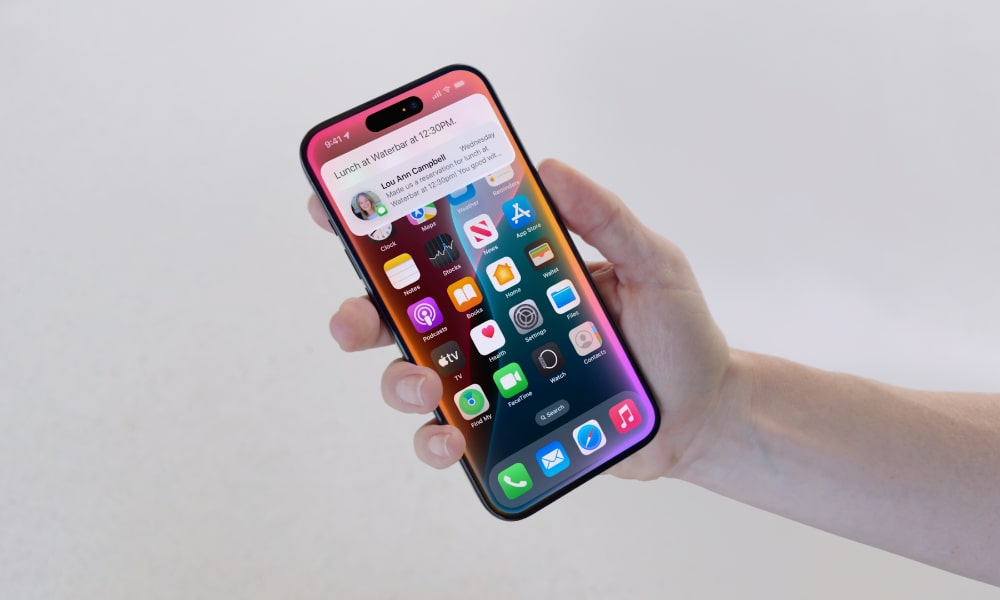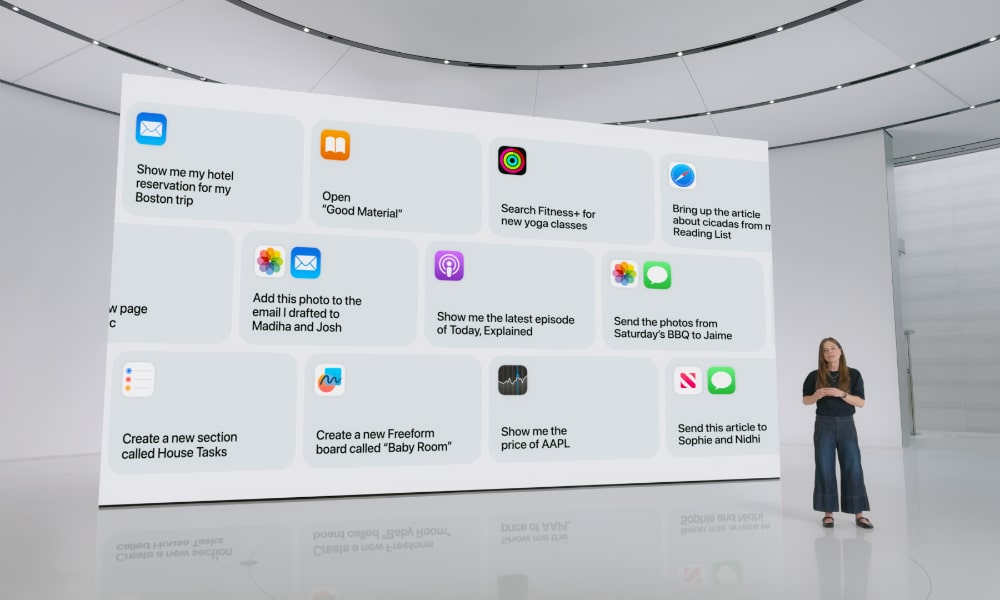A Smarter Siri May Not Arrive Until 2026

Toggle Dark Mode
Following a spate of recent reports that Apple has been having trouble smartening up Siri, the company has officially conceded that a new and improved Siri may not be coming at all this year.
In a statement shared with Daring Fireball’s John Gruber this afternoon, Jacqueline Roy shared that it’s “going to take us longer than we thought” to get the more personalized version of Siri ready:
Siri helps our users find what they need and get things done quickly, and in just the past six months, we’ve made Siri more conversational, introduced new features like type to Siri and product knowledge, and added an integration with ChatGPT. We’ve also been working on a more personalized Siri, giving it more awareness of your personal context, as well as the ability to take action for you within and across your apps. It’s going to take us longer than we thought to deliver on these features and we anticipate rolling them out in the coming year.
Jacqueline Roy, Apple
While Roy’s statement didn’t provide a specific time beyond “the coming year,” they may be even farther off. A related report by Reuters suggests that some improvements will be delayed until 2026. However, it’s unclear if they’re talking about the same features.
Apple first showed off a more context-aware and personalized Siri at last year’s Worldwide Developers Conference (WWDC) when it unveiled its plans for iOS 18. Although the company never offered a timeline for when it would be coming, Bloomberg’s Mark Gurman quickly pegged it for an early 2025 release, likely in iOS 18.4.
Until a few weeks ago, there was no reason to believe Apple wasn’t going to meet that goal. Even though iOS 18 appears to have made Siri dumber, the more advanced version was reportedly being developed in parallel, as more of a drop-in replacement than an upgrade. This wasn’t about training old Siri, but rather firing it and replacing it with a new voice assistant of the same name.
However, this timeline started to show its first cracks in mid-February, when Gurman reported that Apple was still struggling with the technology. At that time, the first iOS 18.4 betas appeared to be running later, and sources were saying that Apple was reaching a critical decision point where it would likely have to give up and push the features off to iOS 18.5.
So, we weren’t too surprised when the first iOS 18.4 betas arrived with the same old simple Siri. That version still adds other Apple Intelligence features, and perhaps even more importantly rolls it out to more languages and users in the EU. iOS 18.4 is slated for an April launch, but iOS 18.5 may not be far behind.
If Apple can get its personalized Siri working in iOS 18.5, that would still be “in the coming year,” but most recent reports suggest it will slip into iOS 19.
Gurman has been reporting for some time that Apple’s ambitions for a more conversational Siri won’t be realized until early 2026 — possibly in a similar iOS 19.4 release. What we were expecting in iOS 18 was a Siri that would be able to dig through the apps on your iPhone and see what’s on your screen to connect the dots so you could use it more like a human assistant.

After all, if you ask your human assistant what time your mother’s flight lands and if you’ll be able to make it to your lunch meeting, they generally have all the information to answer that question without the need for you to spell it out. Along similar lines, the improved Siri would be able to check your mailbox and messages for a flight confirmation, check Apple Maps for traffic and travel time to and from the airport, and look at your email and calendar to find out when and where your lunch reservations are.
This is what Apple was promising for iOS 18, but it’s also working on a version of Siri that you could actually have a chat with. That was never in the cards for this year, but now it looks like even that could end up being part of iOS 20.
Known internally as “LLM Siri,” that was supposed to be shown off at this year’s WWDC. In this week’s Power On newsletter, Gurman said that’s no longer in the cards. Apple still has a lot of work to do on the plumbing, Gurman says.
Before Apple can go full-throttle on development of that Siri, which is supposed to finally work more like ChatGPT and the new Alexa, Apple will need to get the underlying system fixed. And that won’t be easy. That’s why people within Apple’s AI division now believe that a true modernized, conversational version of Siri won’t reach consumers until iOS 20 at best in 2027.
Mark Gurman
Those are the two most significant moving parts in creating a much more advanced version of Siri. However, there could also be more minor things Apple is working on. Hence, it’s hard to fully interpret what’s being said when publications like Reuters say that “improvements” have been delayed without specifying which ones.
Nevertheless, it’s a safe bet that Apple has “punted” these features into the iOS 19 and macOS 16 cycle, as Gruber says.
Reading between the lines, and based on my PhD-level fluency in Cupertino-ese, what Apple is saying here is that these “more personalized Siri” features are being punted from this year’s OS cycle to next year’s: to iOS 19 and MacOS 16. Apple’s years in this context aren’t calendar years, but Apple’s OS product years. Those years effectively start at WWDC.
John Gruber
In true Apple fashion, the company hasn’t even officially acknowledged there will be an iOS 19 or macOS 16, nor has it yet announced WWDC 2025. However, these are all things we can pretty much count on. Gruber’s point is that “the coming year” in Apple-speak doesn’t mean 2025, but rather the year of its next big software releases — the period from June 2025 to June 2026.
That lines up with Gurman’s report from earlier this week, where he said iOS 19 is no longer slated to “include any significant consumer-facing changes to Apple Intelligence.” That’s because Apple has yet to deliver the AI features it’s already promised for iOS 18. “It’s challenging to move on to next year’s release before this year’s operating system updates have rolled out to customers,” Gurman adds.







